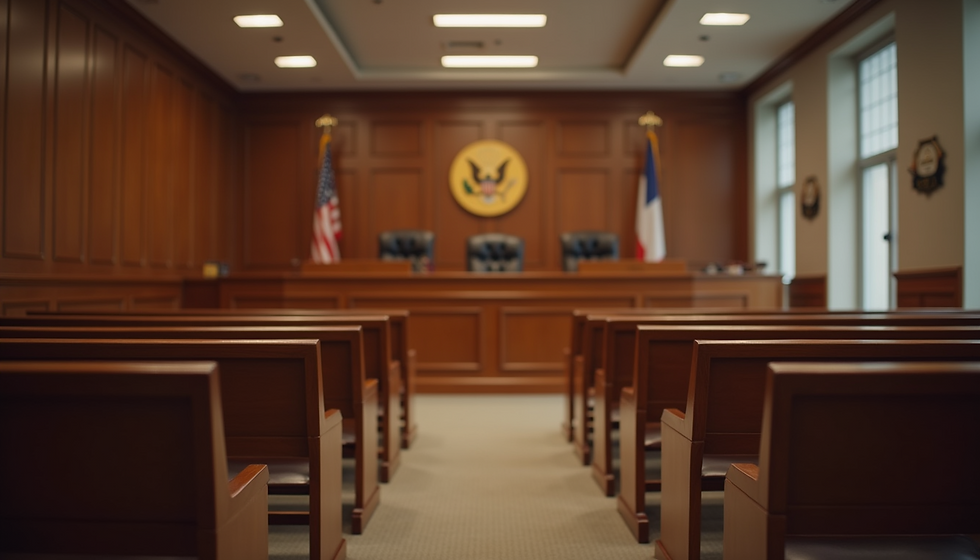Former St. Charles Deputy Ryan Kuehner Not Guilty
- ryankuehner
- Nov 3, 2025
- 3 min read
The emotional impact of a not guilty verdict can be life-changing. For those accused of crimes, the stress of a trial can be unbearable, weighing heavily on their lives and futures. Former St. Charles County Deputy Ryan Kuehner has seen this firsthand and understands how the outcomes of such trials can significantly affect individuals and their families. In this post, we will delve into Kuehner's insights about the transformative nature of not guilty verdicts, the emotional and social ramifications, and their broader implications for the justice system.

Navigating the legal system often feels overwhelming. The presumption of innocence can be overshadowed by public judgment and shame. Kuehner highlights that a not guilty verdict is much more than just a legal decision; it represents a moment that can restore dignity and hope. For instance, after being acquitted, individuals may find the courage to pursue educational opportunities or rebuild personal relationships that suffered during the trial.
The emotional toll of facing charges can lead to severe anxiety, depression, and feelings of isolation. Kuehner notes that even a not guilty verdict does not erase the emotional scars left by the experience. A study by the National Institute of Justice reported that approximately 60% of individuals who have faced wrongful accusations struggle with long-term mental health issues. Still, a not guilty verdict can reaffirm their innocence and empower them to reclaim their lives.
Family members also endure significant emotional strain during these trials. Kuehner observes the relief that washes over families when a loved one is acquitted. This relief can strengthen familial bonds. For instance, Kuehner mentions cases where families came together for the first time after years of turmoil, helping each other heal and move forward together.
The societal impacts of not guilty verdicts are equally significant. Kuehner points out that such outcomes can spark conversations about justice and accountability within the community. For example, in the wake of a high-profile not guilty verdict, local organizations have seen increased discussions around issues like racial bias and the need for reform in how cases are investigated. These discussions could pave the way for better legal practices that ensure fair treatment for all, potentially improving public trust in the justice system.

Moreover, the role of law enforcement is critical. Kuehner emphasizes the need for integrity and a commitment to justice in investigations. Not guilty verdicts highlight the importance of thorough and fair procedures. For instance, Kuehner shares several cases where evidence was mishandled, leading to wrongful accusations in the first place. Such reminders reinforce the need for law enforcement to maintain high standards.
The experiences of jurors during these trials can also lead to invaluable personal growth. Deliberating on a case means weighing evidence that could significantly change a person's life. After such experiences, jurors often have a deeper appreciation of the legal process and the complexities behind each case.
However, the time following a not guilty verdict can present challenges. Even with a clean slate, many individuals face lingering stigma. Kuehner explains that individuals can struggle to reintegrate into society after facing accusations. A survey revealed that 40% of people exonerated from wrongful convictions still experience difficulties finding stable employment. It’s crucial for communities to come together to support those who have been acquitted, helping them rebuild their lives and regain stability.

In summary, Ryan Kuehner’s insights underline the deep and transformative effects that not guilty verdicts have on individuals, families, and the wider community. These verdicts are not just court outcomes; they can restore dignity and encourage healing. As we navigate ongoing discussions around justice and accountability, it is essential to recognize the personal stories behind each verdict and provide support for those affected by the legal system.
Understanding these dynamics allows us to work towards a more just society where individuals are not defined by their accusations but are given a chance to reclaim their lives and make positive contributions to their communities. Ryankuehner.info


